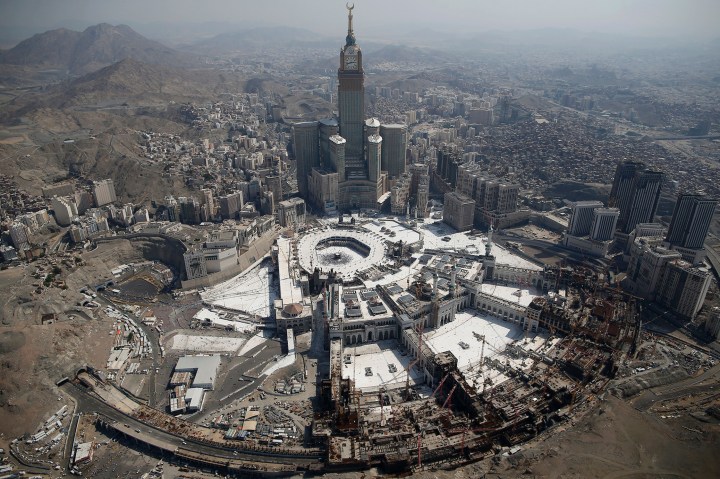
Why some Muslims are boycotting the hajj

Some Muslims are calling for a boycott of this year’s pilgrimage to the holy site of Mecca in Saudi Arabia.
Every year, more than 2 million people travel to Mecca for the hajj, an annual pilgrimage that Muslims are supposed to do once in their lifetimes.
But as critics continue to speak out against the killing of journalist Jamal Khashoggi and the civilian deaths in Yemen by Saudi bombs, there’s a growing movement in the Muslim community to boycott the pilgrimage.
And this month, singer Nicki Minaj pulled out of performing at Jeddah World Fest music festival after pressure from human rights groups.
London-based journalist Ahmed Twaij recently wrote about the issue for Foreign Policy magazine. He spoke with Marketplace host David Brancaccio about how the boycott might impact Saudi Arabia’s economy and public image.
Click the audio player above to hear the interview.
There’s a lot happening in the world. Through it all, Marketplace is here for you.
You rely on Marketplace to break down the world’s events and tell you how it affects you in a fact-based, approachable way. We rely on your financial support to keep making that possible.
Your donation today powers the independent journalism that you rely on. For just $5/month, you can help sustain Marketplace so we can keep reporting on the things that matter to you.


















